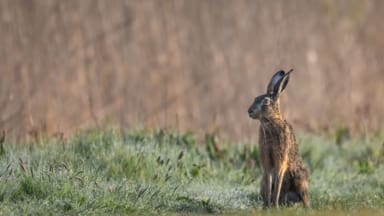
The 2023 State of Nature report uses the latest data from biological monitoring and recording schemes, to provide a benchmark for the status of our wildlife. The report makes for sour reading because despite innovation and progress in ecosystem restoration, species conservation and moving towards nature-friendly land and sea, the UK’s nature and wider environment continues, overall, to decline and degrade.
Ambitious targets are in place to address the nature loss through the (Kumning-Montreal) Global Biodiversity Framework, but given the scale and pace of the crisis, the size of the response and investment remains far from what is needed given the scale and pace of the crisis.
Since (monitoring began in) 1970, the abundance of species studied declined on average by 19%. The UK’s biodiversity suffered huge losses before then due, in part, to habitat loss, development and persecution. Alarmingly, the UK now has less than half of its biodiversity remaining due to human activity. According to the State of Nature report, intensive farming and the continuing effects of climate change are the biggest drivers of nature loss. At sea, unsustainable fishing and climate change are the major contributing factors.
Key findings;
- One in six species in Great Britain are at risk of extinction – one of these 1500 species is the hedgehog (10,008 species are assessed in the report)
- Top groups in decline: 43% of birds; 31% of amphibians and reptiles; 28% of fungi and lichen
- Invertebrates have on average decreased by 13%
- More than half of plant species have declined, as have 59% of mosses and liverworts (bryophytes)
- Pollinators such as bees and butterflies are among the worst-hit groups, falling by 18% on average.
The State of Nature report is the result of compiled by 60 a collaboration between 60 research and conservation organisations.

